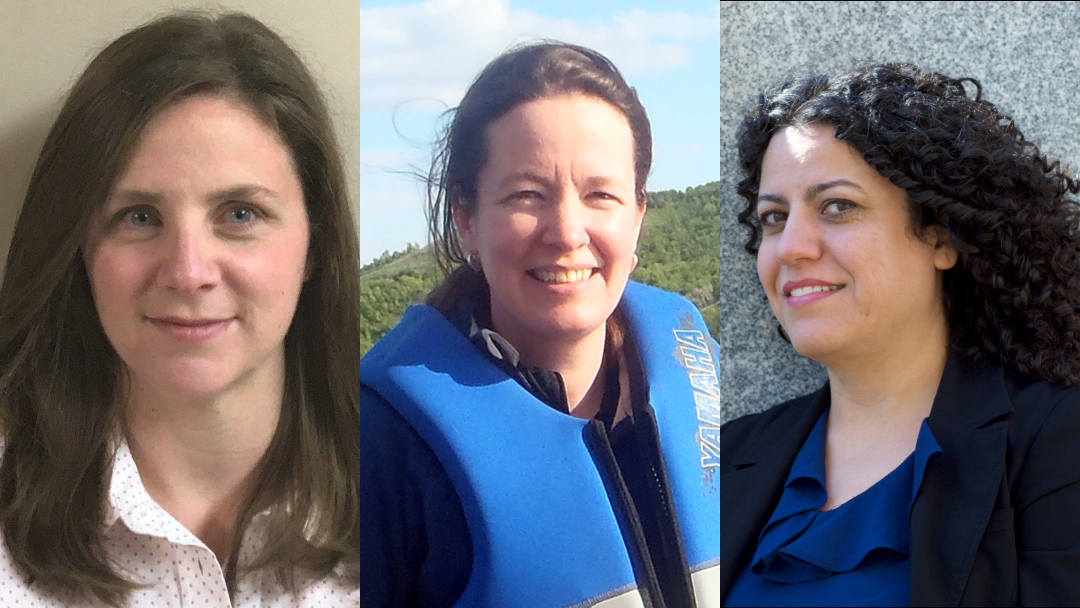
Sophisticated tools enable USask researchers to advance water security, human health
Three University of Saskatchewan (USask) researchers have been awarded $430,000 in total by the Canada Foundation for Innovation (CFI) to help purchase cutting-edge equipment that will advance research aimed at reducing environmental and health-care burdens for Canadians.
“We are grateful for this timely investment by CFI that helps equip our researchers with the state-of-the-art tools they need to drive innovation and unleash discovery in the globally critical areas of water quality and One Health,” said USask Vice-President Research Baljit Singh.
The funding is provided through CFI’s John R. Evans Leaders Fund (JELF), which helps institutions attract and retain outstanding researchers by providing up to 40 per cent of the cost of academic research infrastructure. The remaining funds are solicited from other public and private sources.
Mimicking real-world environments to fight antibiotic-resistant bacteria
JELF funding of $130,000 will help Thomassin, an assistant professor of biochemistry, microbiology and immunology in USask’s College of Medicine, bring specialized technology to Saskatchewan that will help address critical gaps in knowledge related to the chain of events that lead to bacterial infections.
“This specialized equipment — called a microfluidics system — will help address fundamental research questions, incorporating many aspects of the dynamic and changing environments found in nature,” said Thomassin. “It can mimic real-world environments, imitating the different parts of our bodies or surfaces found in hospitals, and is integral to developing highly relevant phenotyping, colonization, and infection models.”
The new cutting-edge technology will enable Thomassin to advance her research to identify and dissect the arsenal of tools bacteria use in real-world conditions. This instrumentation will also be able to test if disinfectants or newly developed antimicrobials are able to treat dangerous bacteria — a key goal in the field and something that has an impact on Canadians’ daily lives and health.
Shining light on the molecules involved in pulmonary inflammation
A major burden on both affected individuals and the health care system, hyperinflammatory pulmonary diseases are among a group of respiratory conditions that ranks as the fifth most common cause of death in Canada.
The airway cells of individuals with these diseases do not correctly regulate inflammation levels, leading to difficulty breathing and other symptoms that can be dangerous and potentially fatal. The specific mechanisms by which airway cells regulate inflammation are not fully understood.
With JELF funding of $175,000, AbuArish’s research team plans to acquire a super-resolution scanning confocal microscope, which enables advanced molecular biophysics analyses. There are no other microscopes of that type in Saskatchewan and few in Canada. This highly sensitive and fast imaging equipment will allow the team to examine the cells that make up the airways at a molecular level to determine the molecules at play as airways regulate inflammation in real time.
AbuArish, an assistant professor of anatomy, physiology, and pharmacology in USask’s College of Medicine, specifically plans to uncover the origins of inflammation malfunction by investigating the behaviour of essential inflammatory proteins under different health and disease conditions.
“Understanding inflammation dysregulation in pulmonary diseases by uncovering the molecular players will pave the way for scientific and pharmaceutical communities to design more effective therapies,” said AbuArish.
See a full list of CFI JELF funding recipients here.
Article re-posted on .
View original article.
